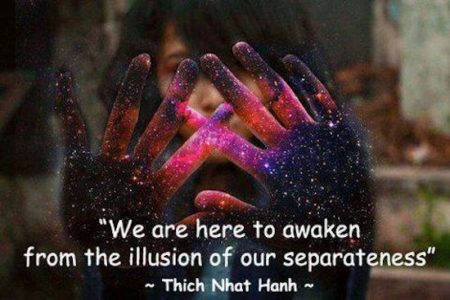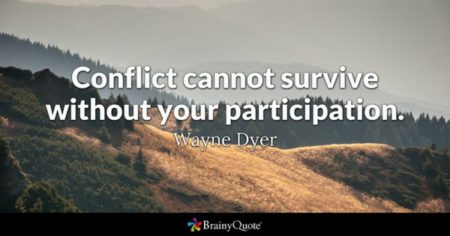35 results for tag: Connection
How Sobriety Strategies Can Help Anxious People Reenter Society After The Pandemic
This article discusses strategies that work for recovering alcoholics and addicts and may help people who are choosing to return to their lives pre-pandemic. The basic recovery principles of accepting what is true right now, creating and sticking to a plan, identifying feelings/emotions, connecting with the community, and gratitude are the cornerstones of recovery. For my first few years, they were vital to my survival. Today, they are a natural part of my life expressed in ways that are more representative of who I am now.
I encourage you to be patient with yourself and allow space for the more challenging feelings and emotions you may experience, like anxiety, distance, being overwhelmed, panic, anxiousness, depression, and possibly wanting to hide under the covers. For most people, these emotions will be temporary. Let your friends and family know what you are going through if that feels safe. I highly recommend having some fun, plain old simple fun! Laugh and play as often as you can! Just because you are re-entering society does not mean you have to consume more alcohol/drugs than you know is good for you. Fun is the goal, not another form of numbness or reason to feel isolated. The principles below may be helpful guides for you as you expand your world to your specific needs and wants.
...
How Iceland Got Teens to Say No to Drugs – The Icelandic Model
I become excited and inspired when I see concepts, ideas, and methods that I use in my work validated by international scientists and authors. The two articles that I have included excerpts from offer alternative ideas about the use and abuse of alcohol, tobacco, and drugs. From my experience, combining these two perspectives is the core of my work, supporting and facilitating shifting patterns, behaviors, obsessions, and addictions.
I typically integrate these three principles/methods for shifting unwanted patterns and behaviors.
- Exercises supporting the discovery and understanding of our patterns and thinking.
- Explore what we feel connected to, or the lack of connection, to people, animals, friends, family, and our environment. Create a plan to improve and expand our connections. (Read Johann Hari's views on addiction and connection at the bottom of this post.).
- Brainstorm interests, passions, and activities that we have either enjoyed in our past or present or would like to explore, including creative expressions, physical activity, opportunities to connect with the natural world, or anything that inspires or stimulates us. We follow the brainstorming process by implementing some of these interests and activities into our lives before or during launching into facilitating the shift in the unwanted behaviors. In short, let's find out what will inspire and stimulate you to replace the patterns, behaviors, and addictions that are problematic. (This parallels the process Harvey Milkman researched in the U.S. and implemented in Iceland, discussed in the main article focusing on teens and addiction.)
Green Flags For Your Relationship
We are all familiar with the "red flags" to be aware of when starting a new relationship. The green flags, however, do not get as much attention. We have possibly spent too much time making sure everyone knows what to avoid in relationships and perhaps not enough focus on what to embrace in relationships. The list of green flags is an attempt to offer another lens to view and assess what is productive and necessary to thrive and prosper in relationships.
Of the 6 Little Green Flags That You've Found A Keeper shared below, I would like to focus on just a few of them. Beginning with being your authentic self around them is key. If you feel safe enough around them to not feel like you have to look, sound and/or be different in their presence than you do with your inner circle, it is essential. Or, from the reverse perspective, why would you want to be with someone who does not feel like being yourself is enough or acceptable? ...
Sexy Weakness – The Sexual Power of Emotional Vulnerability
Sexy weakness? What on earth is that? As a man, like millions of other men, I was taught that being vulnerable was bad and a sign of being weak. I was taught women want a man who is strong, stable, and "tough," whatever the heck that means. I was taught that you keep your emotions in check and never let anyone see who you really are. Like never. It has taken me decades to unlearn some of this programming. Parts of it were easy and simple to leave behind; other elements took longer and needed more attention and intention. More importantly, women did not feel safe around me because I didn't feel safe around me or my thoughts. I typically attracted ...
Arguments About $ Aren’t About Money
Arguments. The first time I meet a new couple that I am working with, I ask them to each share why they are here today. Almost without exception, they each launch into a one-sided description of a recent argument, telling it solely from their perspective. In their minds, they are seeking relationship counseling because of an argument or arguments.
I ask a few more questions to get a greater understanding of their current challenges. Most of the time, they continue to refer back to the argument or arguments previously mentioned.
I will follow that up with a question similar to this, "So if I am hearing you correctly, you are here because of an argument or arguments, not due to a lack of trust, connection, respect, communication, commitment, safety, and/or intimacy?".
 ...
...
 ...
... Being Better Humans Support Group
We have an amazing Support Group for Everyone! We have been meeting every other Monday on Zoom! Come join the circle!

What are we doing?
We are a group of people discussing their honest feelings on relationships, drugs, love, sex, money, and work. We’ll pick a topic, trade stories, have a moderated discussion, and maybe scream, cry, or yell (if needed). We’ll dive in deep and not let fear keep us from expressing who we really are. We’ll explore what makes us amazing and far from amazing, where we need to grow and what gets in the way of growing, how to trust ourselves and others and what obstacles get in the way of trust. We’ll find what environments support our safety, and how to set boundaries in those that don’t. Most importantly, we’ll just practice being our authentic selves. We may include meditation, movement and other practices designed to create clarity, presence and truth. What we do will be guided by what shows up at every session. We will have assignments between sessions to reflect more deeply and practice whatever we worked on together.
...
Conflict Resolution Workshop – Individuals & Couples!







